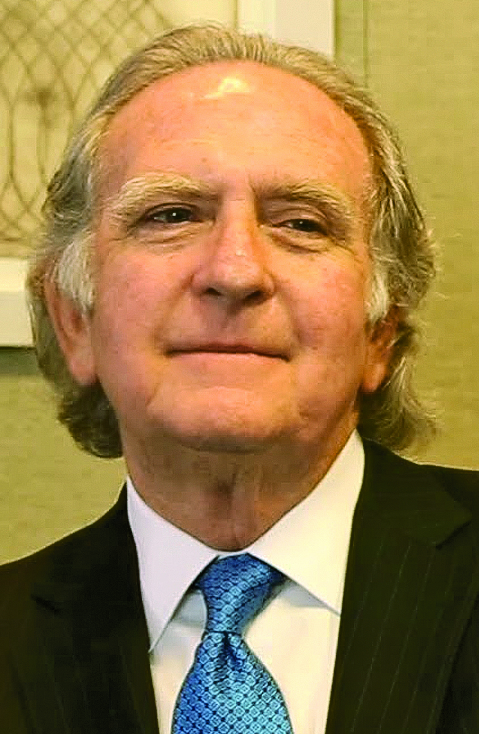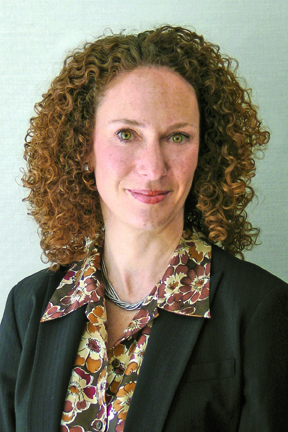
by Mark Smiley | Sep 25, 2017 | Editorials



 David Sirota is a well-known nationally syndicated newspaper columnist, author blogger and former Denver radio host. He is a man of the Left and friend of the Democratic Party here in Colorado and nationally. Recently he has begun to do investigative journalism for International Business Times and he has indicated he wants to do so on a non-partisan basis.
David Sirota is a well-known nationally syndicated newspaper columnist, author blogger and former Denver radio host. He is a man of the Left and friend of the Democratic Party here in Colorado and nationally. Recently he has begun to do investigative journalism for International Business Times and he has indicated he wants to do so on a non-partisan basis.
His recent work at the Times demonstrates that he is a man of his word. His exposé titled “Democratic Governor Hires Health Care Industry Lobbyist to Push Obamacare Fixes in Congress” rips off the façade off Governor Hickenlooper’s so called bipartisan health care proposal he trotted out with Republican Ohio Governor John Kasich.
Sirota discloses that the governor has had the state pay the law/lobbyist firm of Brownstein Hyatt Farber and Schreck $17,500 a month purported for lobbying Congress, the Interior Department, the Justice Department and the Environmental Protection Agency on “issues related to federal spending and national service programs,” whatever that means. In addition apparently the Brownstein firm was to lobby for the Governor’s proposed bandaids to Obamacare.
$17,500 per month is chump change for the Brownstein firm, but when you have hundreds of these scams it adds up. Especially since the Brownstein firm would have to do no additional work for the taxpayer money handed them by the Colorado governor. The Brownstein firm is already lobbying for dozens of insurance, pharmaceutical and health care interests to prevent a single payer system being adopted as proposed by some Democrats, or a free market system proposed by some Republicans. They love the present Obamacare system they helped devise just with more subsidies and tax incentives for themselves.
Hickenlooper and Kasich have gone on television and across the country to sanctimoniously assert that they had come up with a “bipartisan” solution to our health care woes when in fact they are little more than sellouts to Big Pharma and the health insurance companies. Their plan involves massive increased subsidies to the insurance companies and even large tax credits for them providing health plans to “underserved counties.” In addition it has the individual health care mandates forcing Americans to buy the awful health care plans the insurance companies presently provide for individuals.
The Denver Post breathlessly reported in its sub-headline for the release of the plan that “Hickenlooper and Kasich have been working on the blueprint behind the scenes for weeks.” Hickenlooper has degrees in English and geology while Kasich a degree in political science. Neither has the slightest background in the medical field and would have no idea how to redo the health insurance quagmire. But Big Pharma and the health insurers have lots of ideas on how to stick it to the average American.
Sirota’s article also helps explain the mystery of Lieutenant Governor Donna Lynne. After Joe Garcia resigned the lieutenant governor position to take a real job, Hickenlooper appointed Lynne claiming he did so because he wanted someone who 1) had business experience and 2) had no political aspirations. We know the second stated reason was a lie as Lynne has just declared she is running to be the next governor of Colorado. We know that it was not just any business experience that the governor was looking for, but someone who had extensive contacts with the health insurance and health provider fields, which could be an enormous benefit for him should he run for the U.S. Senate in 2020 or even President. Lynne was the head of Kaiser Permanente, the massive integrated managed care consortium in Colorado and various other states. And surprise surprise, according to Sirota, Lynne was key in drafting the Hickenlooper/Kasich bipartisan plan.
It is no secret that health companies and oil companies in Colorado are terrified of Democratic gubernatorial candidate Jared Polis who wants single payer health care and no oil and gas fracking in the state. Notwithstanding the fact that Lynne has absolutely zero political experience or support, she is now running with the strong encouragement of Governor Hickenlooper. Why Lynne? Because with enough money and negative advertising she can soften up Polis for whatever Republican wins the other primary, who will undoubtedly not be for single payer and be for oil and gas fracking.
Which brings us to the Brownstein firm which is known as the “Octopus” since it has its tentacles virtually everywhere. Hickenlooper’s chief of staff is none other than Doug Friednash who was a partner in the Brownstein firm and who, according to Sirota, along with Lynne, strongly supported the $17,500 a month kickback to the Brownstein firm which would be considered illegal in many states but not apparently in Colorado.
One of the reasons it is not is that The Denver Post and the rest of the media in Colorado, with the exception of 710 KNUS radio, will never report on this scandal. Why? Well who is the lawyer for The Denver Post and many other media? None other than the Brownstein firm. The sewer runs deep in Colorado politics but most Coloradans will never find out about it and thus it is unlikely to ever change.
— Editorial Board

by Mark Smiley | Sep 5, 2017 | Main Articles
 Some Exotic Dancers Feel They Are Being Badly Exploited By Class Action Attorneys Here In Colorado And Across The Country
Some Exotic Dancers Feel They Are Being Badly Exploited By Class Action Attorneys Here In Colorado And Across The Country
by Mark Smiley
In a series of class action lawsuits filed in various states, lawyers for exotic dancers claim nightclubs are taking financial advantage of the women regarding employment status. But after recent settlements, some of the putative plaintiff dancers feel that it is the lawyers who are exploiting them, banking millions of dollars while giving the dancers less than what they would make in a single night’s work.
The claims by the dancers are in line with plaintiffs in other class action cases in the United States in which the only substantial beneficiary of the lawsuits are the contingency lawyers themselves. Lawrence Schonbrun in the American Thinker called it “The Class Action Racket.”
He points to the plaintiffs’ lawyers in the Ford Explorer SUV class action cases where the lawyers banked $25 million in attorney fees while the plaintiffs received a $500 coupon toward the purchase of a new Ford vehicle with only 148 plaintiffs bothering to obtain a coupon. Thus all the class plaintiffs combined in that case actually received a total of $74,000 compared to the $25 million bonanza raked in by their attorneys.
In the Bank of Boston class action lawsuit the class members had as a result of the settlement their bank accounts credited with between $2.19 and $8.76 but then had their accounts debited up to $9.00 by the plaintiffs’ lawyers to cover the costs of the litigation. For this dubious benefit for their clients the plaintiffs’ lawyers collected $8.5 million.
Stripper Lawsuits
Plaintiff lawyers in Nevada and Michigan brought lawsuits on behalf of exotic dancers claiming that the strip clubs were violating labor laws regarding classifying the dancers as independent contractors and not employees and not meeting federal minimum wage requirements.
According to the Las Vegas Sun after over a decade of litigation plaintiffs’ lawyers on behalf of a class action of 28,000 dancers and former dancers agreed to a settlement of $6.55 million regarding 64 nightclubs across the country operated by Déjà vu Consulting Inc. The Sun indicated only $935,000 was available to be divided up among dancers who opt for cash payments. Most were to receive only credits against rental and other fees charged by the clubs. The article did not disclose how much in costs of litigation will be taken out and how much the plaintiffs’ attorneys will receive. It is however estimated that the lawyers would take in millions in cash.
Similar class action lawsuits have been filed in Denver by Mari Newman of Killmer, Lane & Newman, LLP. That law firm is best known for losing the lawsuit on behalf of University of Colorado professor Ward Churchill against the University of Colorado for wrongful termination.
Newman has brought separate lawsuits against PT’s Showclub in Denver and Shotgun Willie’s in Glendale (which advertises in the Chronicle). The initial hurdle for any class action appears to be the fact that the exotic dancers agreed to take any controversy, dispute or claim to binding arbitration held pursuant to the Federal Arbitration Act.
Newman takes the position that the exotic dancers are too uneducated and lack the business savvy to understand a provision regarding binding arbitration pursuant to the Federal Arbitration Act.
Extraordinary Contingency Fee
 The Chronicle has obtained a copy of a Retainer Agreement prepared by Killmer, Lane & Newman, LLP signed by an exotic dancer for a case against PT’s Showclub. While plaintiff’s attorneys normally limit themselves to one-third of what is recovered, Newman is apparently demanding 40 percent of the total recovery as well as all costs. Some experts indicate that in their opinion the strippers are the ones being fleeced by their own class action attorneys as has happened in some other class action lawsuits attorneys.
The Chronicle has obtained a copy of a Retainer Agreement prepared by Killmer, Lane & Newman, LLP signed by an exotic dancer for a case against PT’s Showclub. While plaintiff’s attorneys normally limit themselves to one-third of what is recovered, Newman is apparently demanding 40 percent of the total recovery as well as all costs. Some experts indicate that in their opinion the strippers are the ones being fleeced by their own class action attorneys as has happened in some other class action lawsuits attorneys.
In the “Plaintiffs’ Motion to Defer Consideration and Briefing of. Or Deny, Defendants’ Motion to Compel Arbitration” filed in the lawsuit in federal court Mari Newman declared:
“They [strippers] generally lack formal education and are at the bottom of the socio-economic hierarchy. Defendants knew the Plaintiffs lacked the power, resources, and experience to negotiate fair treatment, and used this knowledge to exploit Plaintiffs . . . .”
Experts indicate that if Mari Newman and her firm believe this to be true, how would the dancers have any capacity to enter into a fair and equitable contingency fee agreement with their attorneys? In addition, how would they be able to knowledgably know whether to accept a proposed settlement agreement that doesn’t just enrich the class action plaintiff lawyers? The Motion would appear to be strong evidence against the attorneys should they ever be sued by the dancers for their actions relating to the lawsuit.
As a practical matter, it would appear the vast majority of the dancers at a nightclub like Shotgun Willie’s do have formal education, often into college and beyond and based on what they make at clubs like Shotgun Willie’s, they are far from the “bottom of the socio-economic hierarchy.”
Lawyers Held In Low Regard
 At Shotgun Willie’s the opinion among at least some of the dancers of Ms. Newman and similar class action lawyers was relatively low. One dancer who goes by the stage name “Harper” stated for the record, “Honestly, from my perspective, I actually respect those lawyers a lot less than my fellow dancers, because I think they are making a less honest living than I am.”
At Shotgun Willie’s the opinion among at least some of the dancers of Ms. Newman and similar class action lawyers was relatively low. One dancer who goes by the stage name “Harper” stated for the record, “Honestly, from my perspective, I actually respect those lawyers a lot less than my fellow dancers, because I think they are making a less honest living than I am.”
Harper is a classical syphony harpist and has a master’s degree.
She also indicated that the somewhat paltry settlements for the dancers while vastly enriching the lawyers have become increasingly known. “The lawyers make all the money and those are the only people profiting.”
“Anytime the lawyers walk away with millions and all the entertainers for dozens of clubs split cash of less than a million, yeah, I’d say they [the class action attorneys] are bottom feeders,” said Michele Poague, the Manager of Human Resources at Shotgun Willie’s referring to other lawsuits.
“I think the attorneys are simply money hungry,” said Aumbree Whitmarsh, a former dancer who is now a manager at Shotgun Willie’s.
It appears that in various settlements in other states the dancers at the end do not become employees but retain their independent contractor status notwithstanding the fact that the original claims were that the same was illegal and exploitative.
The lawsuits filed in Colorado by Ms. Newman are expected to last for years if the prior lawsuits across the country are any indication.

by Mark Smiley | Aug 30, 2017 | Feature Story Bottom Left
by Ruthy Wexler
 Every neighborhood wants one — and now Mayfair has got one: a bar like Cheers. For those too young to remember, Cheers was a TV sitcom about a bar whose salient quality got expressed in the show’s theme song: Where everybody knows your name. That idea — a friendly neighborhood haven — was what Mia Peterson and Michael Bruntz had in mind when they bought the Aqua Lounge on Krameria and 14th a little more than a year ago.
Every neighborhood wants one — and now Mayfair has got one: a bar like Cheers. For those too young to remember, Cheers was a TV sitcom about a bar whose salient quality got expressed in the show’s theme song: Where everybody knows your name. That idea — a friendly neighborhood haven — was what Mia Peterson and Michael Bruntz had in mind when they bought the Aqua Lounge on Krameria and 14th a little more than a year ago.
A Vision For Mozart’s
The first thing Bruntz and Peterson did was restore the bar to its original name: Mozart’s. Then they looked around. “Whatever was good, we kept,” Bruntz recalls, “like the hardwood floors, the old walk-in coolers, the grand piano. Then we redid the surfaces, painted the walls, bought new furniture.”
In addition, the partners sought to replace the old bar’s persona. The Aqua Lounge was an LBGTQ bar; the new partners wanted to welcome everyone: gay, straight, young and old. They changed the front window by installing a garage door — which, rolled up expands the space invitingly.
“That stated our vision,” Bruntz explains. “We were opening Mozart’s up to the whole neighborhood.”
They had the old neon sign restored back to Mozart’s Lounge and held their Grand Opening in November 2016. Now — almost a year later — the partners believe Mozart’s is becoming everything they imagined.
“I realized we’d achieved our dream on New Year’s Eve,” Bruntz recalls. “People came in to drink and dance and celebrate. A lot of them walked over. Then someone came up to me and said, ‘I was looking for a bar where we could dance tonight … and I remembered seeing this was open again …’”
Mia’s moment of recognition arrived when a friend from Brooklyn visited this past spring and exclaimed, “You’ve literally built a Cheers!”
Someday We’re Going To Own This Place
When Bruntz and Peterson met at work  more than 15 years ago, they had no idea they’d end up as business partners. They were just good friends who happened to live in the same neighborhood, Mayfair, and enjoyed hanging out at the then-Mozart’s Lounge. During one of those visits, they realized they shared a vision: to create a community gathering place. “Someday,” they vowed, “we’re going to own this place.”
more than 15 years ago, they had no idea they’d end up as business partners. They were just good friends who happened to live in the same neighborhood, Mayfair, and enjoyed hanging out at the then-Mozart’s Lounge. During one of those visits, they realized they shared a vision: to create a community gathering place. “Someday,” they vowed, “we’re going to own this place.”
They tried to buy it several times but the purchase didn’t go through until 2016 — at which point the two fell headlong into a huge learning curve. “That next year was the longest and quickest ever,” laughs Peterson. “I enjoyed applying some of the business practices I learned in the corporate world to our little mom and pop. I’ve always embraced the entrepreneurial spirit.”
Bruntz had to step out of his comfort zone to buy the bar. “Up until this I was doing what I was supposed to, thinking about retirement, my IRA, all that. And running a bar isn’t known as a big security move. But I’d turned 50. I wanted to do something really meaningful to me.”
Family And Fun
On a Wednesday evening in July at Mozart’s, Bruntz appears happily in his element, sharing a laugh with a Vietnam vet who stops by most every night, giving a hug to Laura Sanford, another regular, whose friends have thrown her a birthday party at her favorite bar.
Watching Laura return to her confetti-laden table, Bruntz beams. “I love the people part. I love my customers.”
Asked why she loves Mozart’s, Laura didn’t hesitate. “It’s family.”
“The owners,” she confides, “ are absolute sweethearts.”
are absolute sweethearts.”
Explaining their business philosophy, Peterson explains, “We think community is what’s important. So we emphasize local — beers from local breweries, musicians from around here. We also have a great bar staff, which makes everything easier.”
Live music — an eclectic mix of jazz, funk, classical and old-school rock — happens on weekends. On weeknights, Mozart’s offers lighthearted fun — Music Video Bingo on Wednesday; Karaoke on Thursday and darts twice a week. Connecting goes on all the time.
“A neighborhood couple just celebrated their 20th anniversary here,” Peterson smiles. “That’s what we like to see.”
Socializing Then And Now
The original Mozart’s started out as a place to connect: Mozart’s Hall opened on Larimer Street in the late 1800s as a bar and social center for German immigrants (some of the original equipment made the move from downtown). In the ’50s, the bar relocated to its current spot at 1417 Krameria, changing owners a few times in the process.
And now Bruntz and Peterson are at the helm. They look forward to a busy football season, celebrating with free Broncos touchdown shots, starting an Open Mic night, hosting private events and holiday parties, building out the modest menu (currently standard pub fare) — and continuing to make sure the neighborhood has a fun, safe and friendly place to hang out.
“It’s extremely rewarding to see new faces from all walks of life,” says Bruntz, “and from all parts of the city, come and enjoy the bar.”
He adds, “When we did this, Mia and I decided to not look at risks but at rewards. I have truly found my passion. I love realizing the potential of this place. Seeing what could be and making it that way.”

by Mark Smiley | Aug 30, 2017 | Travel
by Julie Hayden
 “I try to live normal, whatever normal is,” Christine Howard says matter of factly. That simple statement underscores the courage Howard packs into living every day with Stage 4 metastatic breast cancer. “I’m not a survivor, anymore. It’s gonna beat me. It’s an illness that’s going to kill me. I can’t say I’m okay with that but it’s a reality with me.” But Christine is not going down without a fight — for other breast cancer patients.
“I try to live normal, whatever normal is,” Christine Howard says matter of factly. That simple statement underscores the courage Howard packs into living every day with Stage 4 metastatic breast cancer. “I’m not a survivor, anymore. It’s gonna beat me. It’s an illness that’s going to kill me. I can’t say I’m okay with that but it’s a reality with me.” But Christine is not going down without a fight — for other breast cancer patients.
“I am very passionate about Sense of Security,” she exclaims. Howard devotes endless energy and time to the Denver-based charity. It gives direct support to breast cancer patients in treatment with $500 a month for six months to help pay for necessities like food, housing and transportation.
Over the past 15 years, Sense of Security has provided nearly $2 million to more than 1,300 Colorado breast cancer patients.
Howard is one of them, receiving the aid when she was first diagnosed with breast cancer a few years ago. “I felt a golf ball in my chest.” Howard started cancer treatment, working hard to keep her job. “I had decent health insurance but the bills were mounting up. No one budgets for cancer,” Howard explains. “I was under so much stress, I was just trying to keep my head above water.”
Then someone told her about Sense of Security.
“Sense of Security came in at the right time so I could get caught up,” Howard says. Executive Director Tim Taravella says Sense of Security was founded in 2000 by two women after they saw what a friend with cancer went through. “Our mission is to help the middle class,” Taravella explains. “Below certain income levels there are state and federal programs that can help. But there is no safety net for the middle class.”
there is no safety net for the middle class.”
Taravella says most Sense of Security grantees are in Stage 1 or 2 cancers and will successfully go through treatment to live full, vibrant lives. But he says the time they are undergoing treatment can be what he calls “financially toxic.” “Cancer is a ruinous disease financially,” Taravella says. “People are looking down the barrel of financial ruin because of cancer. Anyone who needs cancer treatment will face huge expenses and experience financial decline. Sense of Security’s mission is to stop that decline before they hit bottom. We do what we can to help them get through everything better, financially.”
Howard says Sense of Security provides something more. “It helps financially and that helps emotionally and by relieving the stress it also help patients recover faster.
It gives you that relief, “she adds, “It’s one thing that you don’t have to worry about and that trickles down and helps with overall relief and stress reduction.”
Taravella says Sense of Security is unique in that it is completely community supported. “We don’t get a dime from the gover
nment.” The organization’s major fundraiser is coming up September 16, 2017, at Four Mile Historic Park in Glendale from 5 p.m. to 9 p.m.
Taravella describes the “Distinctly Colorado” event as a “un gala.” “Wear your jeans and boots, learn to fly fish, hit some balls at the golf simulator or take two-step dance lessons.” They raised $75,000 last year and hope to hit $100,000 this year. He says, “This fundraiser is crucial to help Sense of Security continue to help Colorado breast cancer patients.
Howard will be there and urges people, “If you want to help, give to Sense of Security.” She adds, “Just be good to each other. If everybody tried to be a little kinder to people every day, it would make such a big difference in the long run.”
For more information or to get tickets to the Distinctly Colorado event go to senseofsecurity.org.

by Mark Smiley | Aug 30, 2017 | General Featured
by Julie Hayden
It’s a peaceful neighborhood tucked just around the corner from Exposition and Quebec. The yards are carefully tended; flowers bloom and shady trees line the street in front of beautifully maintained homes.
But one house in this quiet neighborhood stands out like a sore thumb. “It’s an eyesore,” complains neighbor Deborah Costin. “The place is a mess. The grass is dead and full of weeds. A tree in the front yard is dead. The exterior paint is peeling and there is trash.”
Normally neighbors would take their complaints to Denver  City inspectors. But that doesn’t do any good in this case because the rundown property at 716 South Poplar in Denver, is owned by the City and County of Denver.
City inspectors. But that doesn’t do any good in this case because the rundown property at 716 South Poplar in Denver, is owned by the City and County of Denver.
Public property records show the three bedroom, two and half bath home with 2,268 square feet was built in 1964. In August 1998, the owners sold it to the City and County of Denver for $209,900. According to public records, a few months later, in October 1998 the City gave it to the Denver Urban Renewal A uthority, the property was rezoned and a year later DURA turned it over to Redi Corporation, which contracted with Mental Health Center of Denver (MHCD) to operate it as a group home for mentally ill residents.
uthority, the property was rezoned and a year later DURA turned it over to Redi Corporation, which contracted with Mental Health Center of Denver (MHCD) to operate it as a group home for mentally ill residents.
According to news reports and official City documents, the home was one of several Denver “scurried” to purchase to comply with a court order following a settlement in a lawsuit filed regarding mental health housing.
The City of Denver hurriedly rezoned the residential property to allow a group home, over the strenuous objections from the neighborhood association and individual neighbors.
But in spite of the frequent paramedic, fire and police sirens responding to 9-1-1 calls from the address the neighbors say they came to accept the group home in their midst and the property was kept in good condit ion.
ion.
That all changed when MHCD closed the group home and on March 25, 2016, the property was turned back over to the care and ownership of the City and County of Denver.
Costin says, “It’s been a year and a half of the house sitting there empty and steadily deteriorating. “She has pictures showing the yard sprouting only weeds with the grass long since dead. Other pictures show aging paperwork stuck in the door from the State of Colorado demanding information about a required inspection. There appears to be a hole in the eaves under the roof, the paint is peeling, roofing materials left as trash sit alongside the house.
“Who knows what is going on in the back as part of the fence fell down,” Costin adds.
The neighbors also have concerns about the inside of the house. They say last winter two neighbors walking their dogs noticed water pouring out the front door, down the sidewalk and into the street. They called 9-1-1 and the fire department responded and shut off the water. But nothing else was done for weeks and neighbors speculate there could be a serious mold problem.
Costin also questions whether the City of Denver is being a good steward of taxpayers’ dollars when it comes to this property. Sold in 1998 for the $209,900, Zillow and other real estate sites estimate the home is worth more than double that today, putting it around $560,000. And while public t ax assessment records show neighboring families are paying thousands of dollars in property taxes the City and County of Denver pays absolutely no taxes on 716 S. Poplar.
ax assessment records show neighboring families are paying thousands of dollars in property taxes the City and County of Denver pays absolutely no taxes on 716 S. Poplar.
Costin says, “Whatever upkeep is being done, utilities or insurance that are being paid is at taxpayer expense and the property value is rapidly plummeting given the deterioration of the house and yard.”
Costin and other neighbors ask, why doesn’t the City of Denver simply sell the property and let a new homeowner who will actually take care of the home enjoy it. “Why not put the property on the market so it could return to being a single-family residence in keeping with the neighborhood?”

Denver City Councilmember, Paul Kashmann
Denver City Councilman Paul Kashmann, whose District Six includes the South Poplar street neighborhood, says the City of Denver has no plans to sell the property. He explains Denver is in negotiations with a non-profit service provider to turn the house into a group home for homeless women to help them get back on their feet. He says the organization is in the process of applying for grants to fund the program and take over the property.
Kashmann says he understands the neighbors’ frustration with the deteriorating condition of the property, “Without question if I were a neighbor I would not be pleased,” Kashmann says. He adds he will see what he can do to push the City to take better care of the property in the meantime.
Denver City spokeswoman Courtney Law says the City has programs to provide regular maintenance of properties it owns and after being contacted by the Chronicle she passed neighborhood concerns to the maintenance people and says they will respond.
Neighbors remain skeptical and are not happy about the prospect of another group home at the property. Costin says, “Is that the best use for that house? No. It was a bad idea in 1998 and it’s a bad idea now.”




 David Sirota is a well-known nationally syndicated newspaper columnist, author blogger and former Denver radio host. He is a man of the Left and friend of the Democratic Party here in Colorado and nationally. Recently he has begun to do investigative journalism for International Business Times and he has indicated he wants to do so on a non-partisan basis.
David Sirota is a well-known nationally syndicated newspaper columnist, author blogger and former Denver radio host. He is a man of the Left and friend of the Democratic Party here in Colorado and nationally. Recently he has begun to do investigative journalism for International Business Times and he has indicated he wants to do so on a non-partisan basis.















